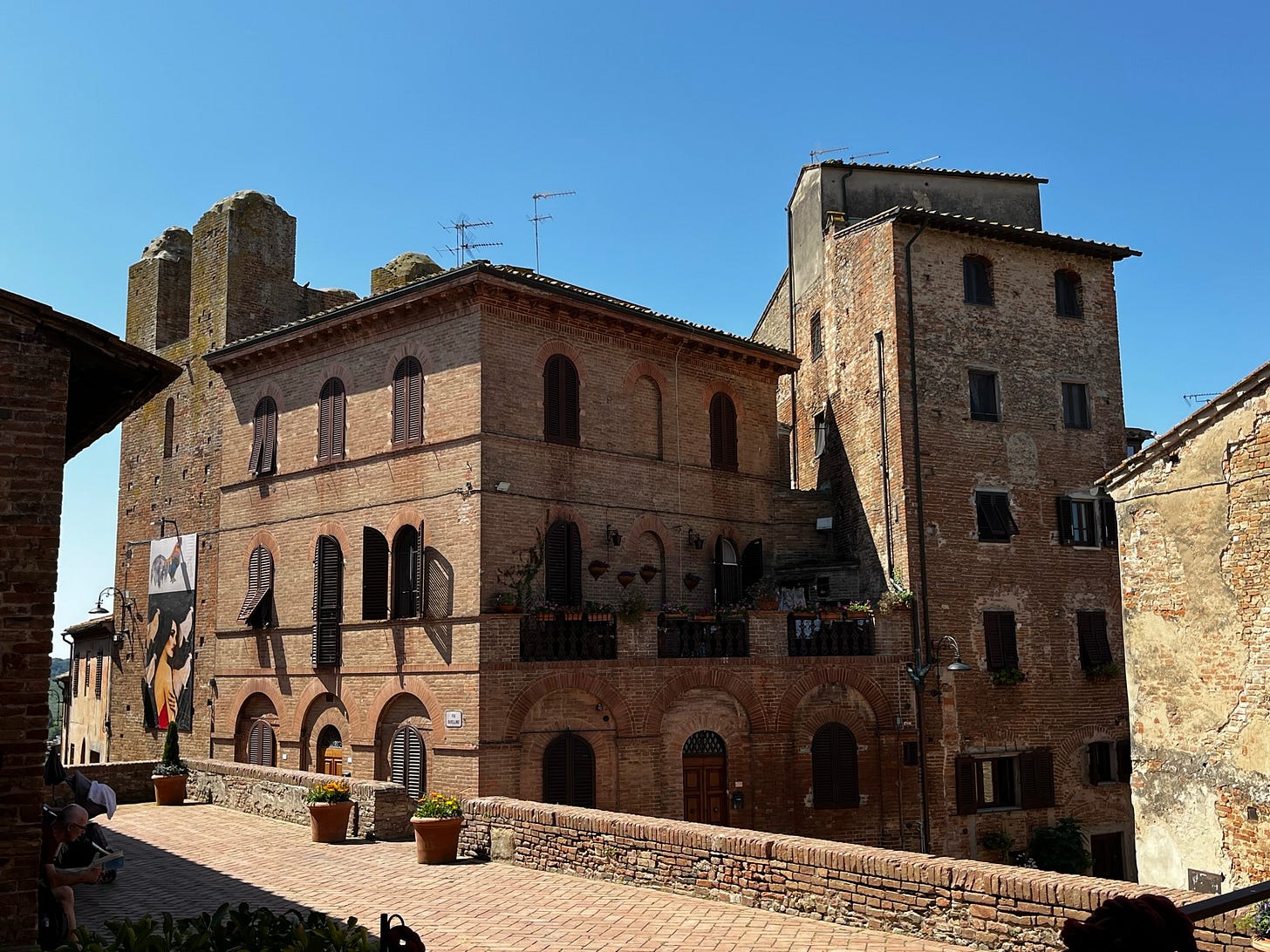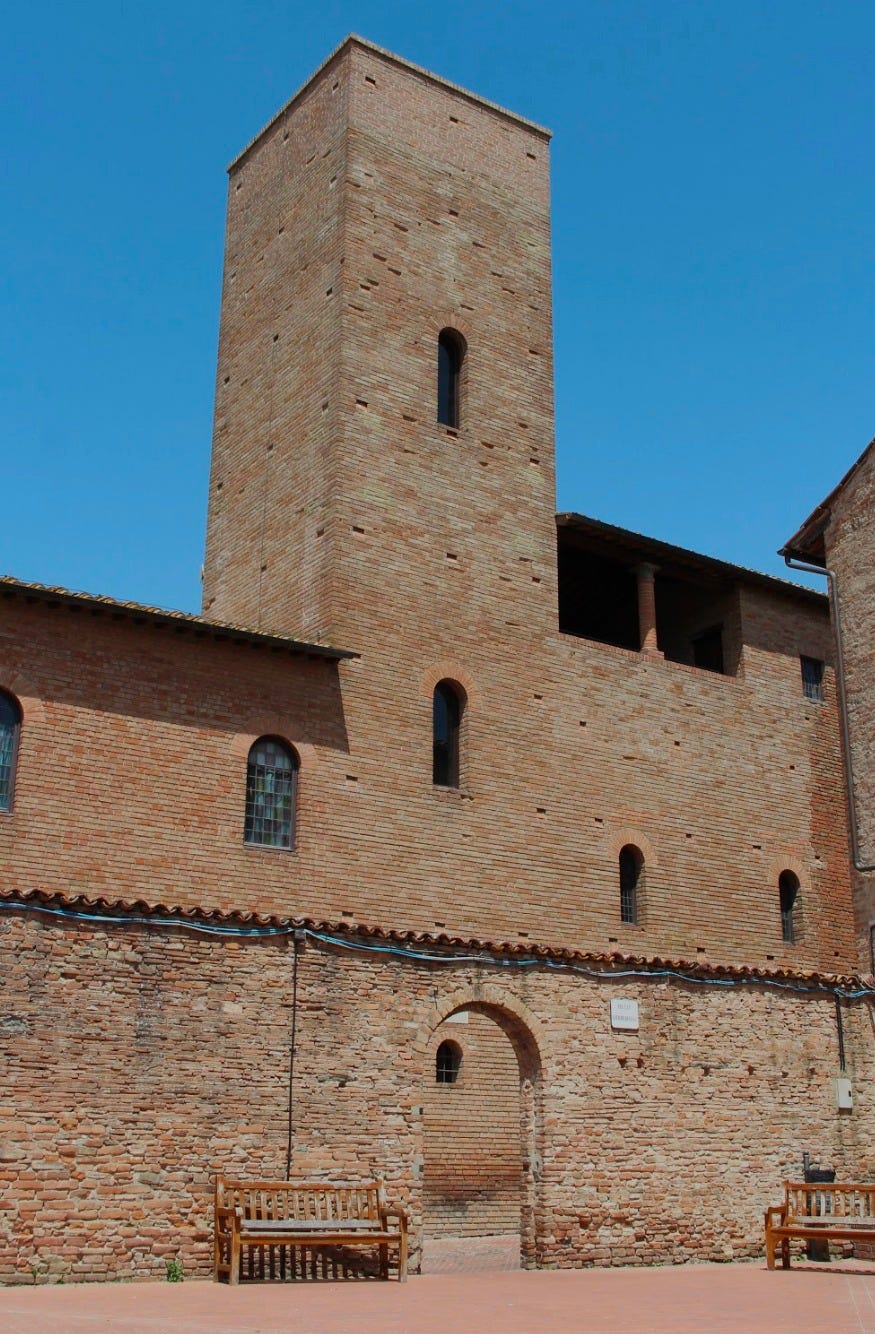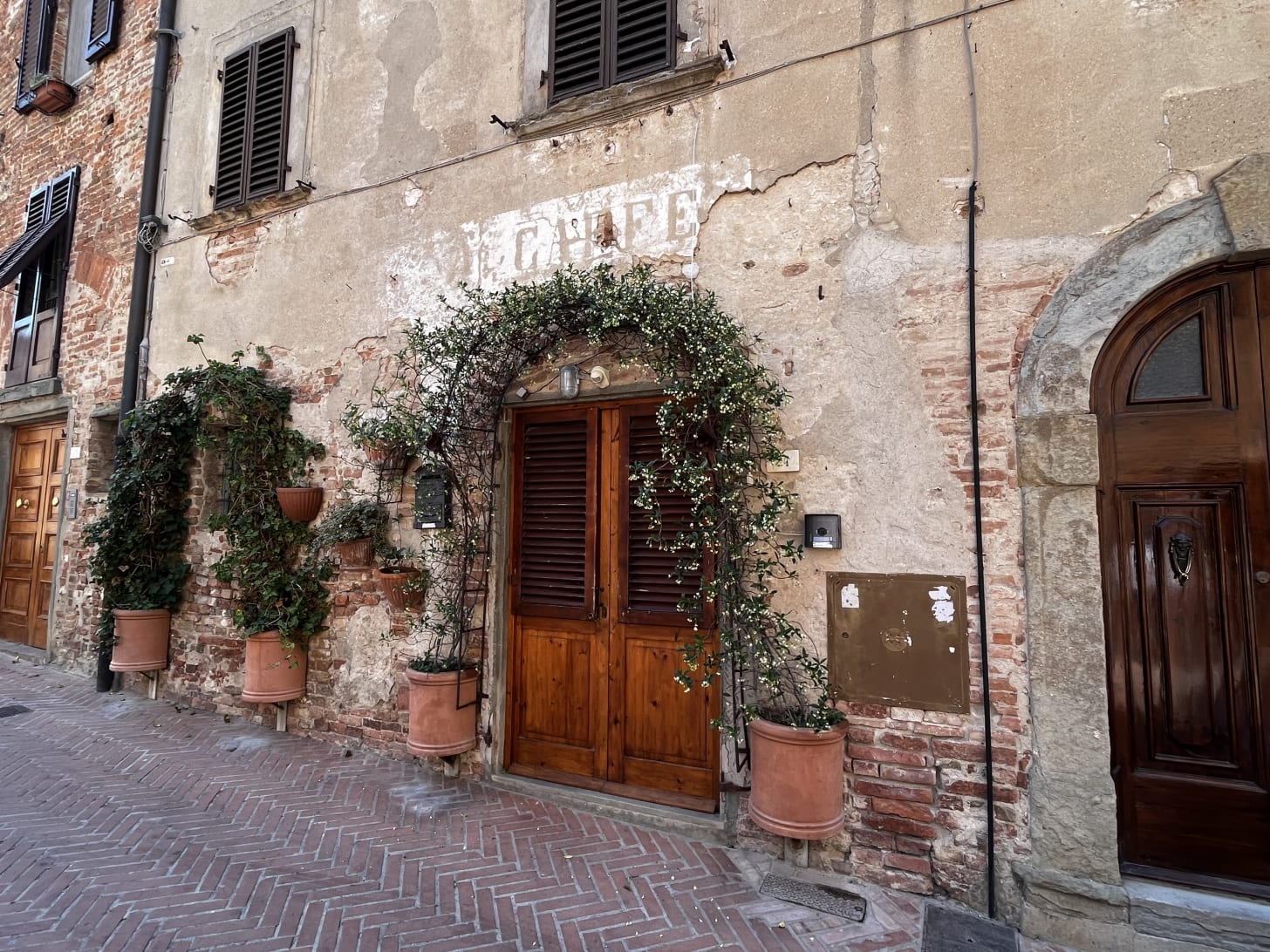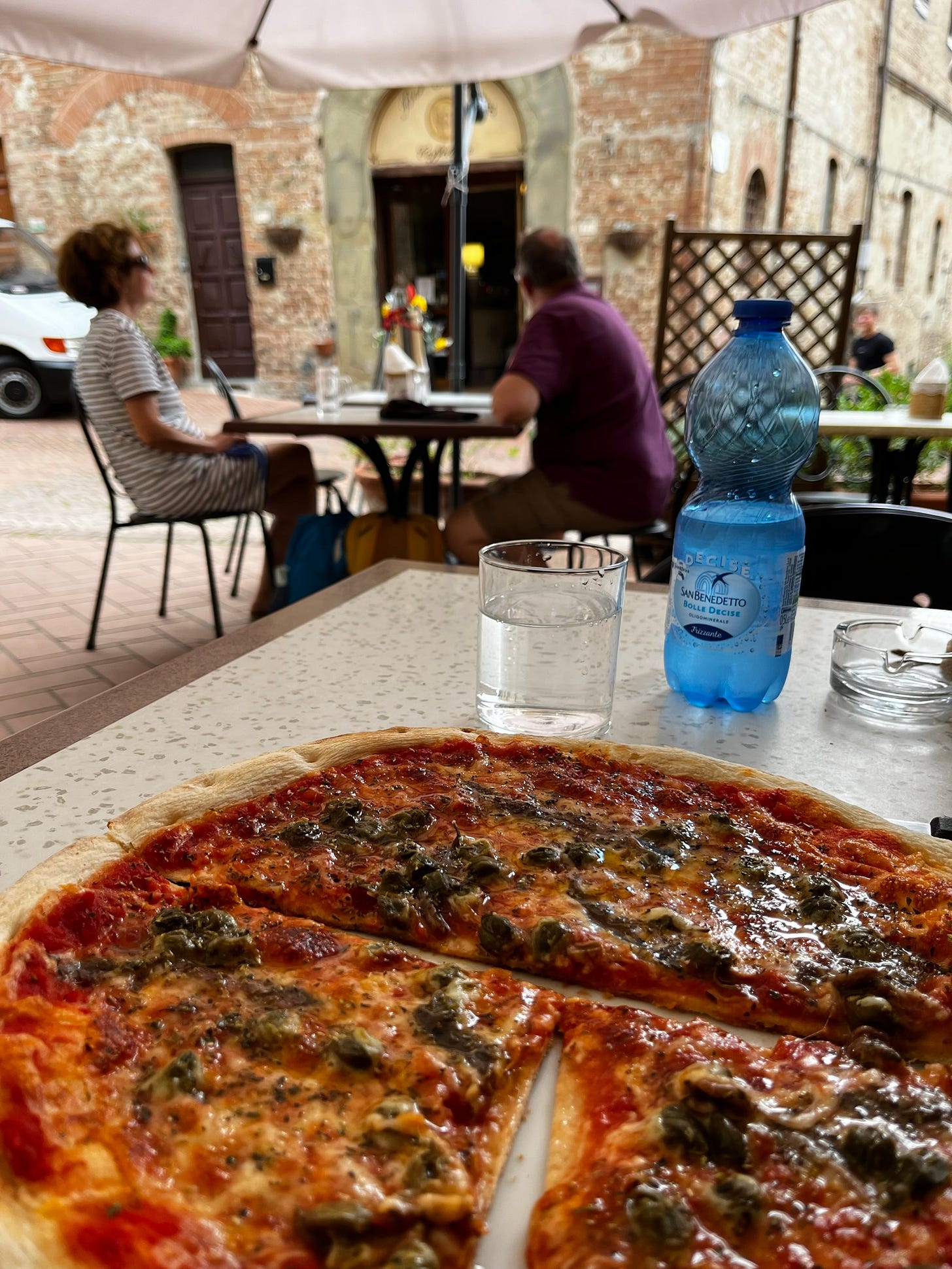Two Masters, One Town: Boccaccio and Shakespeare in Certaldo
Bar Boccaccio, Caffetteria, Certaldo, (FI)
My modest background in Italian literature made me well-acquainted with the name Boccaccio. Learning that this celebrated author was born and lived in Certaldo, just 20 km from my home, felt like a discovery I couldn't pass up. On a day blessed with blue skies and perfect weather, I hopped on my bike and wound my way through the winding Valle d’Elsa roads, passing on the edge of San Gimignano to the medieval town of Certaldo.
Certaldo, like many of Italy’s historic cities, is split into two distinct parts: the “alto” (high), perched on a hill with its medieval heart still intact, and the “basso” (low), the more modern lower section. As I peddled up the steep final stretch leading to the “alto”, I could feel the serenity of the place. I’m not sure if every day is like this, but the quietness and the smaller number of tourists gave me the sense of stepping back in time. My true goal, however, was to visit the place where Giovanni Boccaccio, born in 1313, left his mark. As one of Italy's most influential literary figures, his masterpiece “The Decameron” has immortalized him. This collection of 100 tales, told by ten young people seeking refuge from the plague (the “Black Death”), explores themes of love, wit, and human nature.
The town itself, perched on a hill, seems to float above the world. I wasn’t surprised to see Boccaccio’s name everywhere—on shops, cafés, and streets. Even the young schoolchildren, dressed in medieval attire and parading through the streets, seemed to be a living homage to their literary heritage.
Local artisans and shops showcase handmade crafts and traditional products. The air was filled with the scents of fresh bread and local delicacies wafting from nearby bakeries and eateries. These enticing aromas awakened my senses, reminding me that lunchtime was drawing near.
Bar Caffetteria Boccaccio felt like the perfect stop, considering my growing fascination with the town’s most famous resident. I took my seat on the shaded terrace, joining an English couple sitting across from me. They, too, were enchanted by Certaldo, returning every five years to celebrate their wedding anniversary—an event that had taken place in this very village. I love conversing with strangers, so I struck up a conversation with them over my Margherita pizza, which I customized with anchovies and capers for a salty punch.
"Are you familiar with Boccaccio’s Decameron?" I asked.
The husband, with a twinkle in his eye, leaned in and said, “Of course. The Italians claim him as a master of storytelling, don't they? Yet, nothing compared to Shakespeare.”
"Hold on," I countered, trying not to smirk, "You do realize that without Boccaccio, Shakespeare might not have had half the plots for his plays? The Decameron practically handed him “All’s Well That Ends Well” on a silver platter."
The wife chuckled, adding, "True, true. But Shakespeare brought all that drama to life with those famous monologues. No offense, but does Boccaccio have any 'To be or not to be' moments?"
I smiled and sipped my espresso. "Fair enough, Shakespeare did have a flair for existential crises. But let’s not forget, Boccaccio’s The Decameron gave us stories that have entertained for centuries. And don’t get me started on The Decameron's bold, human themes. Even Netflix couldn’t resist them. Have you seen their latest mini-series?"
They laughed, and we raised our glasses, mine a tiny cup of caffè basso, theirs glasses of white wine. "Perhaps," I said, "we can agree on this: whether it’s Boccaccio inspiring Shakespeare or Shakespeare riffing on Boccaccio, we're all the better for it."
"Agreed," the husband said, with a mock toast. "Cheers to the two greatest thieves of great ideas!"
Unfortunately, my caffè basso (ristretto) didn’t quite make my top ten list. Its subtle bitterness left me pondering the delicate balance required to craft the perfect espresso. Every factor, from the roast to the water’s mineral content, plays a part. I suppose the art of making coffee is a bit like storytelling; the details matter. This one was “not to be”
Before leaving, I decided to experience the funicular, bringing my bike along for the ride down the hill, a fitting end to my day in this enchanting town.
Arrivederci until next Saturday—always observing, always sharing, always sipping, always a tale from an Italian coffee bar and beyond.

















Thank you L. Your inspiration keeps me writing.
Tes photos sont très belles, ils viennent bien compléter ton texte